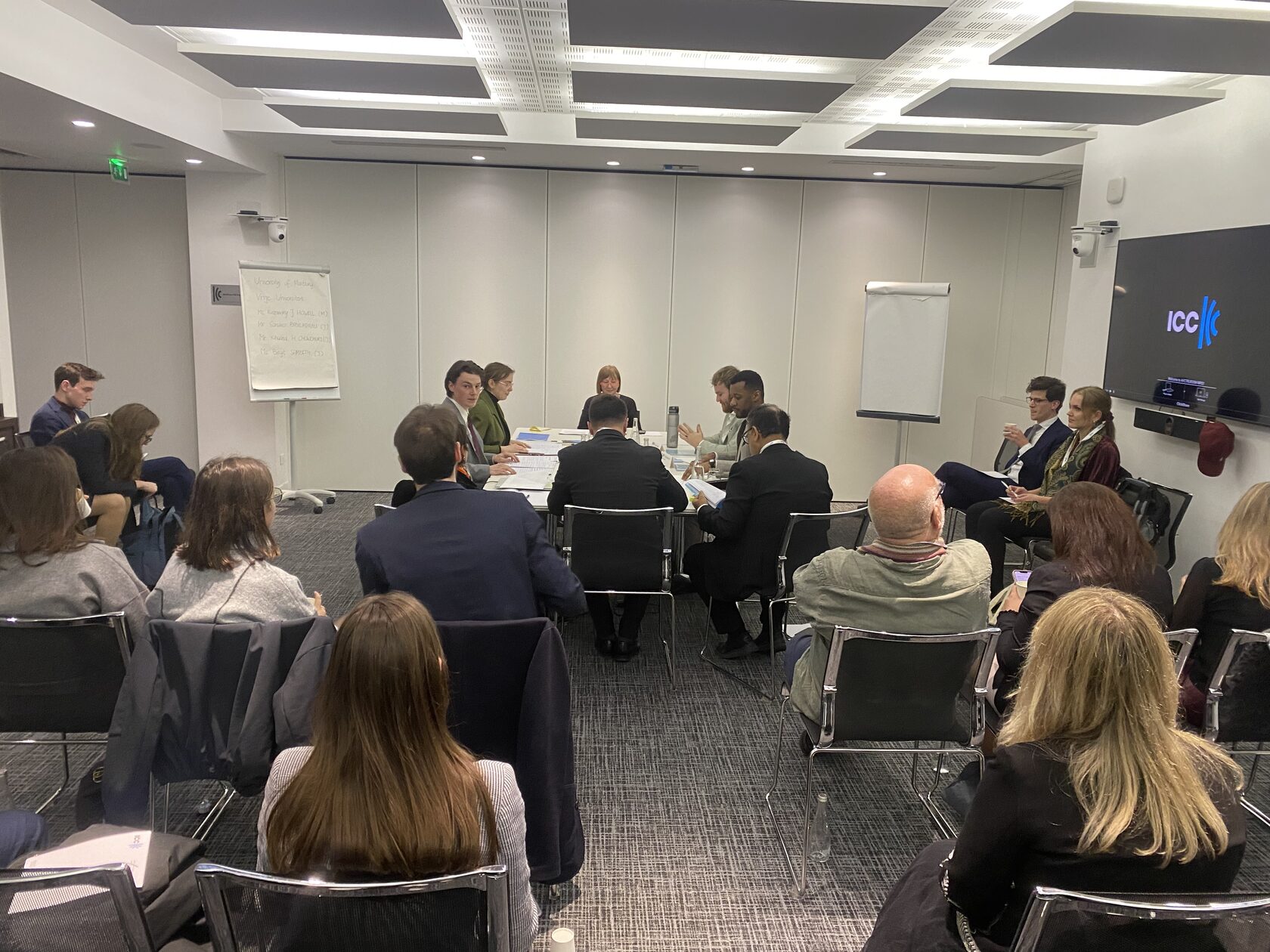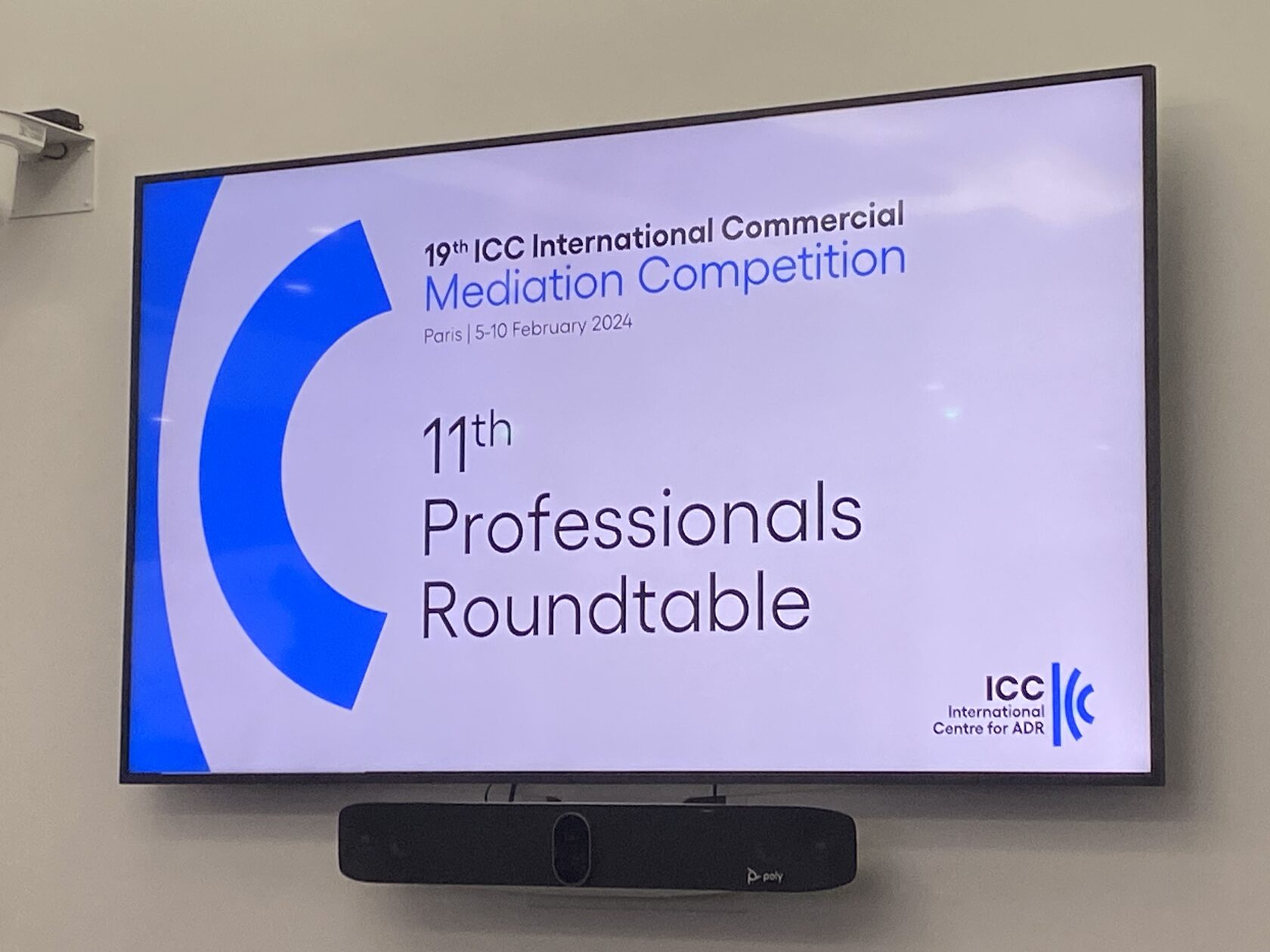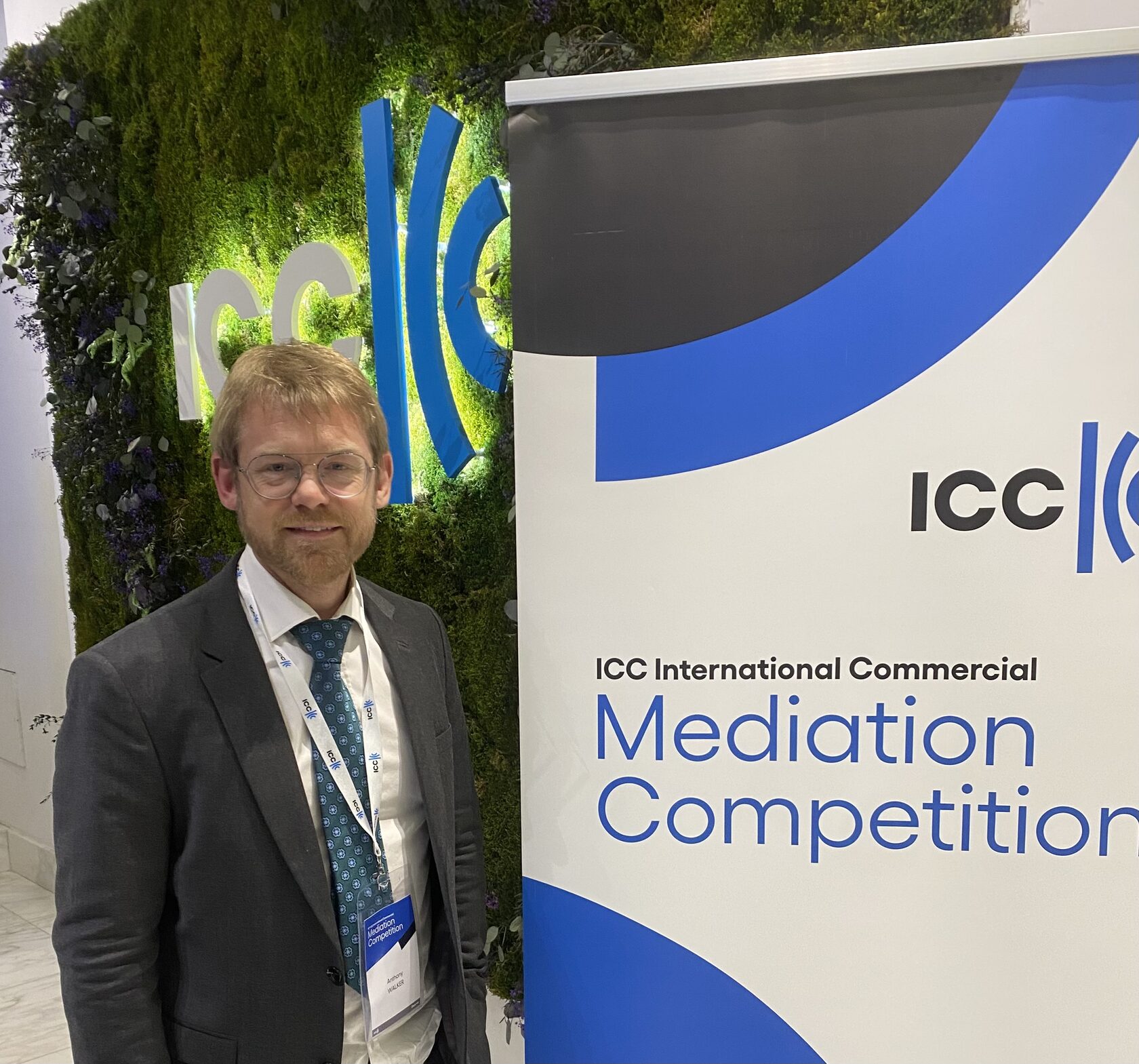Anthony Walker, Solicitor, England & Wales, mediator at the Solis Mediation Center, shares his impressions of the mediation competition recently held in Paris under the auspices of the ICC.
I have significant experience in commercial negotiations and some experience in moots (litigation and commercial arbitration). However, I recently had the opportunity to observe a mediation competition.
I naively assumed that the teams would have to compete in order to see who had the best mediation skills.
In fact, given the nature of mediation, this turns out to be quite difficult. Mediation presupposes a minimum of two parties who are in dispute and a independent third party to mediate (although of course there can be two co-mediators).
The mediation competition in question was the ICC meditation competition, held annually in Paris. It is attended by mediations from all around the world. I met mediators from Brazil, Scotland, Indonesia, Japan, Spain, to name just a few. These professional mediators were both the judges in the competition and also the mediator of the dispute itself.
I have significant experience in commercial negotiations and some experience in moots (litigation and commercial arbitration). However, I recently had the opportunity to observe a mediation competition.
I naively assumed that the teams would have to compete in order to see who had the best mediation skills.
In fact, given the nature of mediation, this turns out to be quite difficult. Mediation presupposes a minimum of two parties who are in dispute and a independent third party to mediate (although of course there can be two co-mediators).
The mediation competition in question was the ICC meditation competition, held annually in Paris. It is attended by mediations from all around the world. I met mediators from Brazil, Scotland, Indonesia, Japan, Spain, to name just a few. These professional mediators were both the judges in the competition and also the mediator of the dispute itself.


The student teams represented in each case one of the two parties n the case and had to present their positions (one team member representing the commercial person responsible for agreeing the terms of any settlement and the other there to address the legal arguments). Each round was strictly limited to an hour, in which time period the parties had to try to reach a settlement.
There are clearly a number of ways in which this is artificial, and does not represent what a normal mediation looks like. This is not a criticism, and I understand that this is necessary for the purposes of the competition (although as noted below improvements could be made):
Without wanting to be too critical, the ICC Mediation Competition tests presentation and negotiation skills, but not mediation skills. I have heard that other mediation competitions have three teams in each round, one of which is the mediator(s). That is of course more interesting, but harder to judge and organize which teams move forwards in the competition. What about a competition where there are two co-mediators, who are competing with each other?
Anthony Walker
Mediator of the Mediation Center Solis
There are clearly a number of ways in which this is artificial, and does not represent what a normal mediation looks like. This is not a criticism, and I understand that this is necessary for the purposes of the competition (although as noted below improvements could be made):
- The time available is short in the competition, whereas real mediations can often take longer (or as long as the parties need). This means that the students are forced to enter the room already pre-prepared to settle.
- Each team had a “legal” representative. This created an odd role, which the students found difficult. They could only present a legal position, but having no right or role to negotiate or compromise, they were often clearly in the back seat. In a real mediation the involvement of lawyers is usually avoided as far as possible.
- The mediator in the competition is required to take a passive role, to enable the teams to show their skills. In a real mediation the mediator is required to be much more active.
- The students are judged on their “use” of the mediator (as a resource) – leading to very artificial conversions and actions. In reality, a mediator needs to push the parties towards compromises.
Without wanting to be too critical, the ICC Mediation Competition tests presentation and negotiation skills, but not mediation skills. I have heard that other mediation competitions have three teams in each round, one of which is the mediator(s). That is of course more interesting, but harder to judge and organize which teams move forwards in the competition. What about a competition where there are two co-mediators, who are competing with each other?
Anthony Walker
Mediator of the Mediation Center Solis
